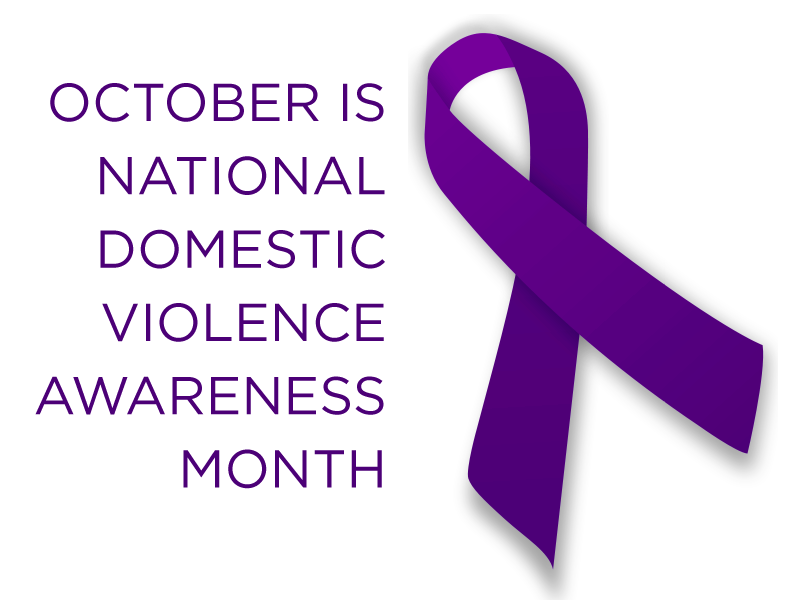Domestic violence awareness

By Jill Kozberg • JFCS Counseling Program Manager
Domestic violence is a serious issue in our society. It takes all forms. All shapes. All sizes. All genders. All ages. All religions. All races. All income levels. All educational levels.
No one is exempt.
 Domestic violence refers to a pattern of behaviors in which one partner, in an intimate relationship, exerts and maintains power and control over the other. It is an abuse of power and control. It comes in many forms. It can be verbal, emotional, financial, physical, psychological, sexual abuse and coercion, reproductive coercion, stalking, and cyberstalking.
Domestic violence refers to a pattern of behaviors in which one partner, in an intimate relationship, exerts and maintains power and control over the other. It is an abuse of power and control. It comes in many forms. It can be verbal, emotional, financial, physical, psychological, sexual abuse and coercion, reproductive coercion, stalking, and cyberstalking.
Victims can be intimate partners, roommates, children, and other family members.
These behaviors tend to come from the belief that the perpetrators should be the priority in the relationship and have the right to control their partners. They do not desire equality; they desire a hierarchical relationship in which they are superior and their partner is subordinate. They typically achieve this by doing things that leave their partner feeling less worthy.
Abuse is never ok, no matter what.
It is important to remember that these behaviors are learned, and to engage in abusive behaviors is a choice. Perpetrators will often blame their victims for the abuse, but in all instances, the perpetrator is solely responsible.
These relationships can be confusing, in part because it is not always clear early in the relationship that it will become abusive. The controlling behaviors tend to evolve as the relationship develops. All relationships are different, but according to the National Domestic Violence Hotline, some signs of an abusive relationship include a partner who:
- Tells you that you can never do anything right
- Shows extreme jealousy of your friends and time spent away
- Keeps you or discourages you from seeing friends or family members
- Insults, demeans or shames you with put-downs
- Controls every penny spent in the household
- Takes your money or refuses to give you money for necessary expenses
- Looks at you or acts in ways that scare you
- Controls who you see, where you go, or what you do
- Prevents you from making your own decisions
- Tells you that you are a bad parent or threatens to harm or take away your children
- Prevents you from working or attending school
- Destroys your property or threatens to hurt or kill your pets
- Intimidates you with guns, knives or other weapons
- Pressures you to have sex when you don’t want to or do things sexually you’re not comfortable with
- Pressures you to use drugs or alcohol
- Intimidates you with their anger
- Behaves in ways for which you need to make excuses
Unfortunately, these relationships are not uncommon. In fact, the statistics are daunting. According to the National Domestic Violence Hotline:
- On average during a one-year period in the U.S., more than 12 million people are victims of rape, physical violence or stalking by an intimate partner.
- More than 35 percent of women and 28 percent of men in the U.S. have experienced rape, physical violence and/or stalking by an intimate partner in their lifetimes.
- Nearly half of all adults in the U.S. have experienced psychological aggression by an intimate partner in their lifetimes.
- Repeatedly receiving unwanted phone calls, voice, or text messages was the most commonly experienced stalking tactics (over 78 percent for women and over 75 percent for men) in the U.S.
- 30-60 percent of perpetrators of intimate partner violence also abuse children in the household.
- The U.S. Advisory Board on Child Abuse and Neglect suggests that domestic violence may be the single major precursor to child abuse and neglect fatalities in this country.
- One in 10 high school students has experienced physical violence from a dating partner in the past year.
- One in four dating teens is abused or harassed online or through texts by their partners.
- 43 percent of dating college women report experiencing violent and abusive dating behaviors including physical, sexual, technology, verbal or controlling abuse.
In order to combat these bleak statistics, there is much work to be done. We must keep talking about these issues and keep educating people. We must keep talking to our children, our parents, our brothers, our sisters, our neighbors, our friends, our schools, our places of worship, and our communities.
If you are concerned that a loved one may be in an abusive relationship, one of the most important ways you can help them is to try to empower them to make their own decisions, and offer non-judgmental support. You can acknowledge that they are in a confusing and dangerous situation, and that it is not their fault. It is also important to encourage them to connect with people outside of the relationship. Encourage them to continue to get support and help them develop a safety plan, regardless of whether they plan to stay or leave the relationship.
No one is immune. Not any person. Not any group. “Everyone has the right to live life free of abuse.”
If you have questions and want to talk, JFCS can help. Call us at 952-546-0616. Click here to read Kozberg’s bio and for more information JFCS Counseling and Mental Health Services.
The National Domestic Violence Hotline – 1-800-7233 or TTY 1-800-787-3224 is answered 24/7/365.
